Kia Niro vs SsangYong Torres - Differences and prices compared
Costs and Efficiency:
When it comes to price and running costs, the biggest differences usually appear. This is often where you see which car fits your budget better in the long run.
Kia Niro has a somewhat advantage in terms of price – it starts at 29100 £, while the SsangYong Torres costs 33800 £. That’s a price difference of around 4714 £.
Fuel consumption also shows a difference: Kia Niro manages with 2.40 L and is therefore clearly more efficient than the SsangYong Torres with 7.90 L. The difference is about 5.50 L per 100 km.
As for range, the SsangYong Torres performs decisively better – achieving up to 462 km, about 400 km more than the Kia Niro.
Engine and Performance:
Power, torque and acceleration say a lot about how a car feels on the road. This is where you see which model delivers more driving dynamics.
When it comes to engine power, the SsangYong Torres has a a bit edge – offering 207 HP compared to 180 HP. That’s roughly 27 HP more horsepower.
In terms of top speed, the SsangYong Torres performs slight better – reaching 194 km/h, while the Kia Niro tops out at 185 km/h. The difference is around 9 km/h.
There’s also a difference in torque: SsangYong Torres pulls distinct stronger with 339 Nm compared to 265 Nm. That’s about 74 Nm difference.
Space and Everyday Use:
Beyond pure performance, interior space and usability matter most in daily life. This is where you see which car is more practical and versatile.
Seats: offers more seating capacity – vs .
In curb weight, Kia Niro is minimal lighter – 1474 kg compared to 1498 kg. The difference is around 24 kg.
In terms of boot space, the SsangYong Torres offers distinct more room – 703 L compared to 451 L. That’s a difference of about 252 L.
In maximum load capacity, the SsangYong Torres performs slightly better – up to 1662 L, which is about 217 L more than the Kia Niro.
When it comes to payload, SsangYong Torres to a small extent takes the win – 552 kg compared to 466 kg. That’s a difference of about 86 kg.
Who wins the race?
The SsangYong Torres proves to be dominates this comparison and therefore becomes our DriveDuel Champion!
SsangYong Torres is the better all-rounder in this comparison.

SsangYong Torres
Costs and Consumption
View detailed analysis
Engine and Performance
View detailed analysis
Dimensions and Body
View detailed analysis
Kia Niro
The Kia Niro blends clever packaging and modern styling into a compact crossover that’s refreshingly sensible for daily life. It’s comfortable, economical and packed with user‑friendly tech, so if you want a fuss‑free family car with a touch of green credibility, the Niro is worth a test drive.
details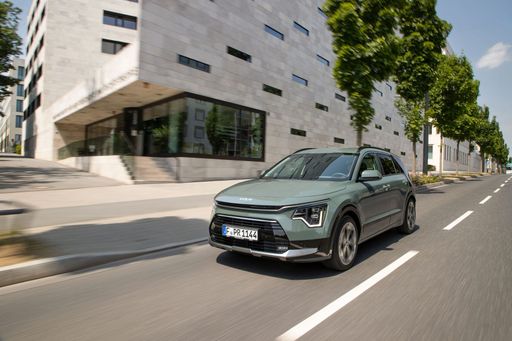 @ Kia Corporation
@ Kia Corporation
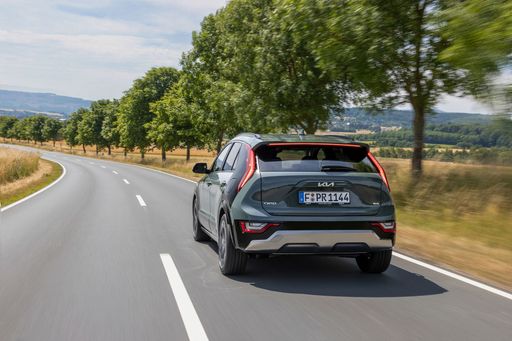 @ Kia Corporation
@ Kia Corporation
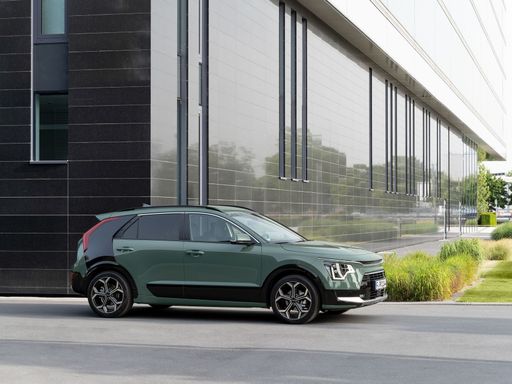 @ Kia Corporation
@ Kia Corporation
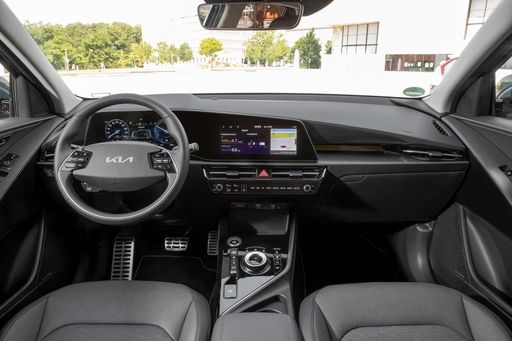 @ Kia Corporation
@ Kia Corporation
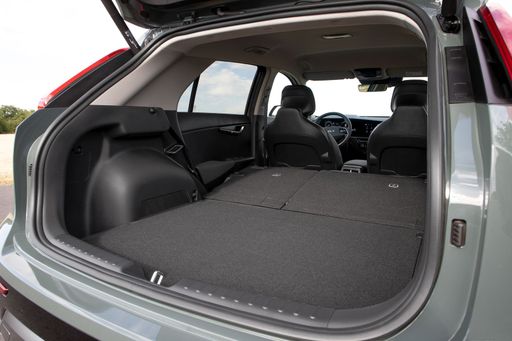 @ Kia Corporation
@ Kia Corporation
SsangYong Torres
SsangYong Torres cuts a rugged, purposeful silhouette that feels more expensive than its price tag, offering generously practical packaging and a no-nonsense feature set. It drives with surprisingly assured manners and genuine off-road appetite, making it a clever choice for buyers who want real SUV capability without badge snobbery.
details
 @ Kia Corporation
@ Kia Corporation
|
|
|
|
|
Costs and Consumption |
|
|---|---|
|
Price
29100 - 38600 £
|
Price
33800 - 44600 £
|
|
Consumption L/100km
2.4 - 4.9 L
|
Consumption L/100km
7.9 - 9.1 L
|
|
Consumption kWh/100km
-
|
Consumption kWh/100km
18.70 kWh
|
|
Electric Range
57 - 62 km
|
Electric Range
462 km
|
|
Battery Capacity
1.3 - 11.1 kWh
|
Battery Capacity
-
|
|
co2
53 - 111 g/km
|
co2
0 - 207 g/km
|
|
Fuel tank capacity
37 - 42 L
|
Fuel tank capacity
50 L
|
Dimensions and Body |
|
|---|---|
|
Body Type
SUV
|
Body Type
SUV
|
|
Seats
5
|
Seats
5
|
|
Doors
5
|
Doors
5
|
|
Curb weight
1474 - 1594 kg
|
Curb weight
1498 - 1618 kg
|
|
Trunk capacity
348 - 451 L
|
Trunk capacity
703 L
|
|
Length
4420 mm
|
Length
4700 mm
|
|
Width
1825 mm
|
Width
1890 mm
|
|
Height
1545 mm
|
Height
1710 mm
|
|
Max trunk capacity
1342 - 1445 L
|
Max trunk capacity
1662 L
|
|
Payload
466 kg
|
Payload
552 kg
|
Engine and Performance |
|
|---|---|
|
Engine Type
Full Hybrid, Plugin Hybrid
|
Engine Type
Petrol, Electric
|
|
Transmission
Automatic
|
Transmission
Manuel, Automatic
|
|
Transmission Detail
Dual-Clutch Automatic
|
Transmission Detail
Manual Gearbox, Automatic Gearbox, Reduction Gearbox
|
|
Drive Type
Front-Wheel Drive
|
Drive Type
Front-Wheel Drive, All-Wheel Drive
|
|
Power HP
138 - 180 HP
|
Power HP
163 - 207 HP
|
|
Acceleration 0-100km/h
9.9 - 11.4 s
|
Acceleration 0-100km/h
-
|
|
Max Speed
170 - 185 km/h
|
Max Speed
191 - 194 km/h
|
|
Torque
265 Nm
|
Torque
280 - 339 Nm
|
|
Number of Cylinders
4
|
Number of Cylinders
4
|
|
Power kW
102 - 132 kW
|
Power kW
120 - 152 kW
|
|
Engine capacity
1580 cm3
|
Engine capacity
1497 cm3
|
General |
|
|---|---|
|
Model Year
2025
|
Model Year
2023 - 2024
|
|
CO2 Efficiency Class
C, B
|
CO2 Efficiency Class
G, A
|
|
Brand
Kia
|
Brand
SsangYong
|
Is the Kia Niro offered with different drivetrains?
The Kia Niro is available as Front-Wheel Drive.
The prices and data displayed are estimates based on German list prices and may vary by country. This information is not legally binding.
